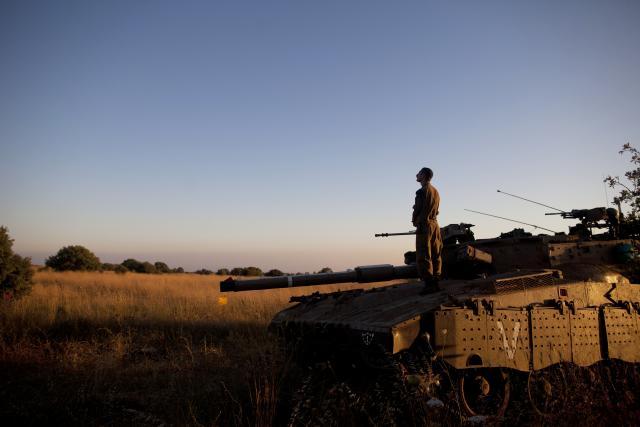"Eternal war for pipelines is what's behind war in Syria"
Gas and oil have always been at the heart of the problems in the Middle East, writes the Italian newspaper Il Sole 24 Ore.
Friday, 21.10.2016.
12:20

"Eternal war for pipelines is what's behind war in Syria"
The Beta agency is quoting the paper's analysis that said the war began because President Bashar al-Assad refused to accept the building of a pipeline that would have gone from Qatar to Europe, through his country.Robert Kennedy Jr.'s analysis published on the Politico website is also cited, in which the U.S. environmentalist, who is related to former U.S. President John F. Kennedy explained that the real cause of the war in Syria was Assad's refusal to agree to the gas pipeline from Qatar to Europe, which is why the U.S. launched a smear campaign against him.
Kennedy Jr. also claimed that this American campaign to vilify the Syrian head of state did not start because of peaceful protests of the Syrian opposition at the time of "the Arab Spring" in 2011, but when Qatar in 2009 offered to build the pipeline worth ten billion euros, that was to go through Saudi Arabia, Jordan, Syria and Turkey, and into Europe - but which Assad refused to agree to.
The Syrian president, the Italian media outlet continued, explained this by saying the pipeline would conflict the interests of his ally Russia, the largest supplier of gas to Europe.
"Here's a good reason to also consider Moscow's motive to intervene in Syria, and even the recent meeting in Ankara between Turkish President Erdogan and Russian President Putin and their agreement to revive the plans to build the Turkish Stream pipeline," notes the daily.
The analysis further observes that "one must be careful when talking about bilateral energy projects in the Middle East - if you do a favor to one side, you can be sure to be harming some other."
The Milan-based newspaper adds that Assad in 2010 began to negotiate with Iran, its transitional Shi'ite ally and a key opponent of America and Saudi Arabia, about building a large-capacity pipeline that would transport Iranian gas to Europe through Iraq, Lebanon, and Syria.
But, according to Robert Kennedy Jr. U.S. intelligence services immediately, together with Qatar and Saudi Arabia, started financing the Syrian opposition and preparing to topple the regime in Damascus.
"And, at the same time, in June 2011 the United Arab Emirates, on behalf of the countries of the Gulf, offered Assad the financial support of USD 150 billion if he broke off his political, economic and military alliance with Tehran. In return, besides the money, the Gulf countries promised that the revolt against Damascus would stop," the article continued.
But Assad once again refused, and the U.S. and French ambassadors in Damascus traveled to the city of Hama to support the revolt against the Syrian government.
"In this way, a legitimate rebellion against the nation's autocratic and brutal regime was transformed into a proxy war with the active participation of Turkey and with the blessing of then U.S. Secretary of State Hillary Clinton, and the money that arrived from Saudi Arabia and Qatar."
The Qatari gas pipeline that was rejected in 2009 would have been, recalls the analysis, a kind of an extended version of Tapline, a pipeline that the U.S. company Bechtel and the Saudi company Aramco wanted to build in 1947 - something that the Syrian parliament prevented at the time. The CIA then organized a coup in Damascus.
Only four years later, in 1953, the British and the Americans - with the main role being played by the local head of the CIA who was the nephew of U.S. President Roosevelt - organized another coup, this time to remove Iranian President Mosaddegh, who nationalized the oil industry... and similar events followed in the region in recent decades.
"The coups that Americans organized for reasons of energy and resources are family issues: in the past it was the Roosevelts, the Kennedys, and now it is the Clintons," writes Il Sole 24 Ore, a newspaper of Italian business circles.
It further notes that there also "doubt as to whether the U.S., France and Britain, are really, as they have declared themselves to be, 'Friends of Syria'."
After the collapse of the Ottoman Empire the French and the British in 1916 carved up the Middle East into their zones of interest, with the British getting oil-rich Mosul (where Americans are currently fighting against Islamists), while the French got to control Syria and Lebanon, the article said.
The history might have in a way repeated itself in Mesopotamia and Syria if there weren't for the Russian intervention that started in September 2015, the daily concluded, with Moscow now being the actor "trying to fill the gap left by the Americans who had been the decisive factor in the region for decades."
























































Komentari 3
Pogledaj komentare